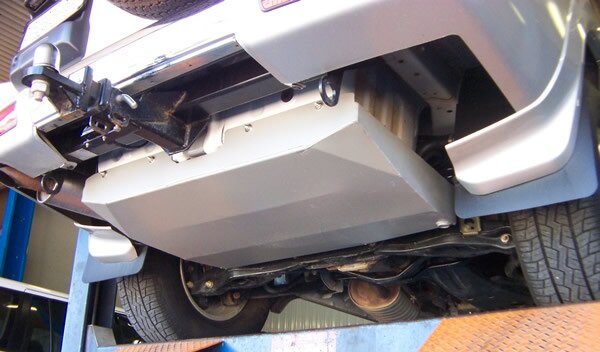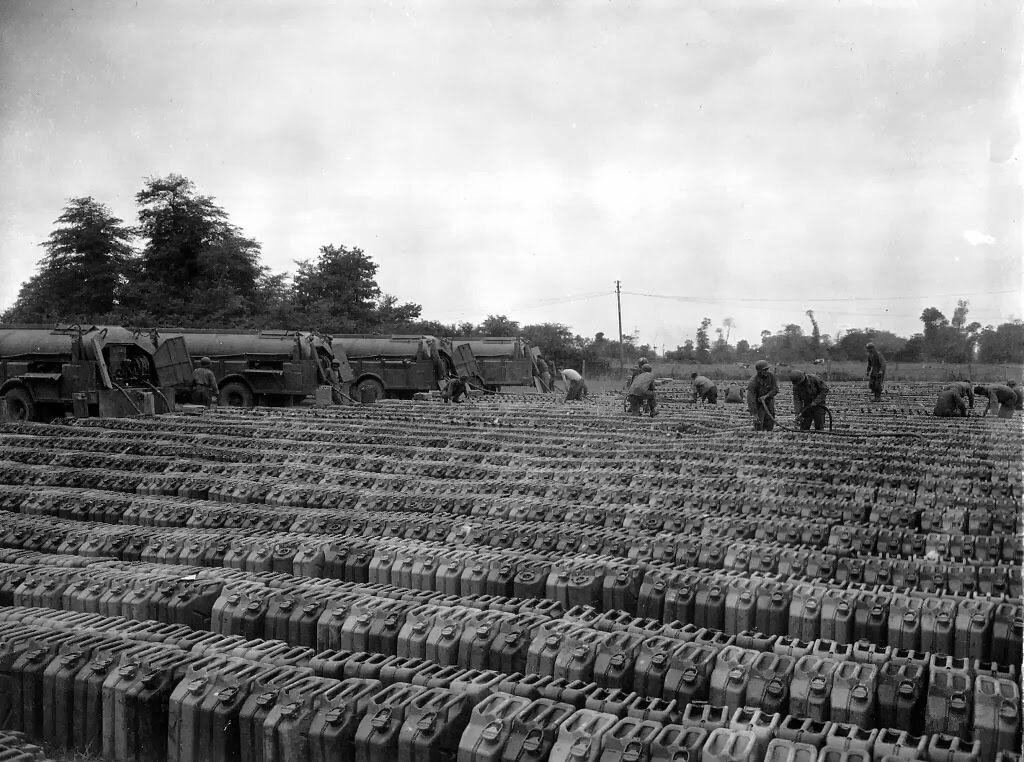Shelf Life of Fuel: How long is too long for petrol and diesel?
How long can you actually store fuel, down there, in your tank? Open your brain and allow me to explain…
This question is inspired by a loyal viewer from the bulimic island of Reluctant Brexitania. You Irish - I don’t know how you can even look at yourselves in the mirror. Twentieth-largest island in the world. What sort of claim is that? That’s nothing.
You Irish don’t even have wildlife that kills (not properly, anyway). I went to tripsavvy.com and searched ‘dangerous animals in Ireland’ as part of my diligent research for this A-Grade beer garden report. You know what the number-one hit is? Have a friggin’ guess. Dangerous animals in Ireland. That’s right. Out-of-control Irish pussy. I’m not making that up >>
Visit Ireland, have fun, but keep the pussy at arm’s length. Feral Pussy. That could be a Guy Ritchie movie. Perhaps the long-awaited sequel to Snatch.
Hello from Ireland (I'm guessing that with your surname you have Irish blood in you).
May I ask for your help - which I'd be happy to pay for - regarding unleaded petrol and the fact that it degrades/goes off if left standing in an undriven vehicle for, say, 3-6 months.
Can you please tell me what I should do in these circumstances?
-James
No need to pay, James. Make a donation to the IPCF - the Irish Pussy Control Foundation instead. Or whatever it’s called.
Some answers
Taking your points in order: We’re all former convicts from your neck of the woods down here, obviously. So perhaps I have Irish blood in me, as well as on me, genealogically speaking.
One of my ancestors, Isaac Tarr, was apparently a Royal Marine cracking the whip on the First Fleet - so I almost feel cheated, in terms of proper convict heritage. Perhaps this explains why I don’t really fit in.
I can only hope that further back in the past there were some properly murderous, axe-wielding Viking genes in my personal pool. That would also explain a lot.
Look, I think this contention that the fuel goes off is largely bullshit. It’s actually fairly inert if stored properly.
Air head
So, talking about unleaded petrol (AKA gasoline in the US), for the moment:
Modern automotive fuel systems are effectively sealed to limit evaporative emissions. And that’s the biggest potential problem with storage - the more volatile components of gasoline evaporate off first, and what’s left is a sort of heavier, higher-density hydrocarbon blend, which requires a different air-fuel ratio.
But there’s effectively zero evaporation in a modern fuel system. Same thing in an approved storage container - they’re sealed too. They manage expansion with an air space and the inherent flexibility of the container - steel or plastic.
Different story, perhaps, in your lawnmower. They typically manage expansion by punching a hole in the top of the fuel filler cap, and the fuel can evaporate away endlessly, all through the cooler months.
I guess there’s a small amount of oxidation in these sealed environments. Like, say you’ve got a 60-litre fuel tank. It’s got 30 litres of fuel in it. Therefore it’s got 30 litres of air in it as well. 30 litres of air is about six litres of oxygen gas - because air is about 20 per cent oxygen. Which is very little in the context of oxidation. So that’s going to be trivial.
Just spit-balling it, for context: 30 litres of petrol weighs about 22 kilos. And 22 kilos of fuel requires about 300 kilos of air to oxidize fully in your engine (in practice the air:fuel ratio is about 13:1 by mass. Air is about 1.2 kilos for 1000 litres. So, you actually need about 240,000 litres of air to oxidize 30 litres of petrol completely, and you’ve got 30 litres of air.
So, given the air availability in a half-full tank, you can oxidize only about one ten-thousandth of the fuel. In that sealed environment. That’s negligible.
(If, however, you’re suffering excessive fuel consumption in your big, heavy 4WD, but can’t explain why it’s so, know this >> )
Bottling it up
In a modern car, therefore, evaporation and oxidation are insignificant.
The only other mechanism I can think of, which might degrade the fuel, is internal destabilisation, where it reacts with itself because some of the additives don’t play well with others, in the long term.
BP’s life of petrol fact sheet says:
“The storage life of petrol is one year when stored under shelter in a sealed container. Once a seal is broken the fuel has a storage life of six months at 20°C or three months at 30°C.”
So, I think we can all infer that destabilization of the fuel is not really a thing. And it seems to me that in all their advice on fuel shelf life that I could find, they’re not really addressing ‘in a car’. They’re talking about some hypothetical ‘sealed container’. Whatever that is.
The company goes on:
“The storage life of petrol in equipment fuel tanks is one month. This can be extended by topping up with one third of fresh fuel, which restores the volatile components that have evaporated.”
Not entirely sure that an “equipment fuel tank” is the same thing as a car fuel tank. There are regulatory standards to prevent evaporative emissions from cars. Therefore: Negligible evaporation. (Check out BP’s full fuel storage fact sheet >> )
So, fuel doesn’t go off, in the manner of the milk left out in the sun. (For you Brexitanians, and sundry Irish who aren’t hiding in terror from a rabid pack of wild pussy, the sun is a big bright thing in the sky, viewable, at times, elsewhere on Earth. Really. It’s up there. Above the overcast.
Even if a little of the more volatile end of the fuel managed to evaporate off, modern cars have knock sensors and they’ll retard the timing to protect the engine from pinging under load. And the best hedge there is: if you’ve left your car inoperative for some protracted time, just top off the tank with the highest octane fuel available at the earliest opportunity.
That’ll pump up the octane and restore the volatile components you’ve lost, if any.
I’d make one final point here about ethanol-blended fuel: e10-e85. Depending on where you live. Ethanol is hygroscopic, meaning it sucks up, and mixes with, water.
So, the main risk here is if humid air gets into the fuel tank, then it gets cool, the water condenses out and mixes with the ethanol.
If this process goes on for some time, this thing called ‘phase separation’ can occur. You get this light layer of mainly petrol and a small amount of ethanol floating on top of a smaller, heavy layer of ethanol and water. It’s more common in boats - which is why you should never use e10 in boats.
Phase separation is bad, because if the heavy, watery layer gets big enough it gets sucked into the engine and then it’s basically hell on earth - dogs and cats, living together … the full Caligula-style orgy of mechanical unpleasantness. Which is great for your mechanic, and tow-truck operators.
So, if I was going to leave a car (or any other implement) inactive for a protracted period I would: A) probably not run it on ethanol-blended fuel, and B) I’d be topping it off with fresh fuel ASAP if I forgot A) and let e-whatever stagnate in the tank for some time.
Doing diesel
Now, before I let you go, just for completeness, on diesel:
Diesel is not volatile like petrol, so evaporation is not really a factor.
According to BP again:
“The main problem with diesel fuel in opened containers is that moisture from condensation will create a favorable (sic) environment for fungus and bacteria that degrade the fuel. The simple solution is regular treatment with a biocide every six months when storing for lengthy periods.”
BP says diesel in storage is also susceptible to the formation of gums and sediments that can block filters, and this is generally associated with the fuel going darker in colour over time. You can get BP’s full fact sheet on long-term diesel storage here >>
Image: Club4x4
The company adds that diesel stored under cover, in sealed containers, can be expected to last 12 months, but it may in fact last longer than that.
My take on this last point is that if you’re that blue-singlet knob - the aspirational Mick Dundee wannabe bogan devoted to habitually whipping the outback into submission, with Shazza (that’s the Australian generic term for “female” FYI) proudly at his side, in his small cock-substitute Ford Ranger Wildtrak (or whatever) - given the complexity and repair cost of modern diesel fuel systems, don’t be a cheapskate and use old diesel you’ve had in the shed since the dinosaurs roamed among us - which was never, except of course if you’re also a dogshit-dumb creationist arsehole.
Don’t do old diesel. And don’t store it up long-term. Simple.
Instead, on the way back from your latest outback adventure, tip your range-extending diesel in jerry cans down the neck of your small-cockmobile, and arrive home to your fibro mansion with empty jerrys, the better to prepare for Monday morning at Centrelink, so you can save up and do it all again next year.






















The Mitsubishi Outlander is an excellent-value seven-seat family vehicle with plenty of features and capability. It looks modern and tough, but you need to know if it’s going to be good enough compared with other medium SUVs.